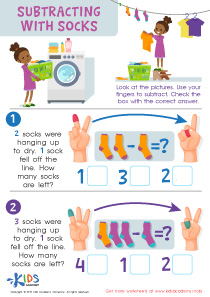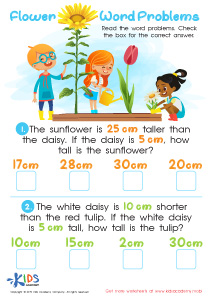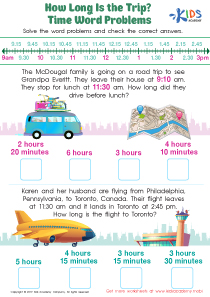Addition skills Addition and Subtraction Word Problems Worksheets for Ages 4-8
11 filtered results
-
From - To
Enhance your child's math abilities with our engaging Addition and Subtraction Word Problems Worksheets, specifically designed for ages 4-8. These worksheets provide a fun and interactive way for young learners to grasp addition skills through relatable scenarios. By solving real-life problems, children will develop critical thinking and improve their math fluency. Our resource encourages practice in recognizing numbers and understanding simple operations, laying the foundation for future math competency. Perfect for homeschool or classroom use, these worksheets ensure kids stay motivated while learning. Start building confidence in math today with our easy-to-understand worksheets tailored for early learners!
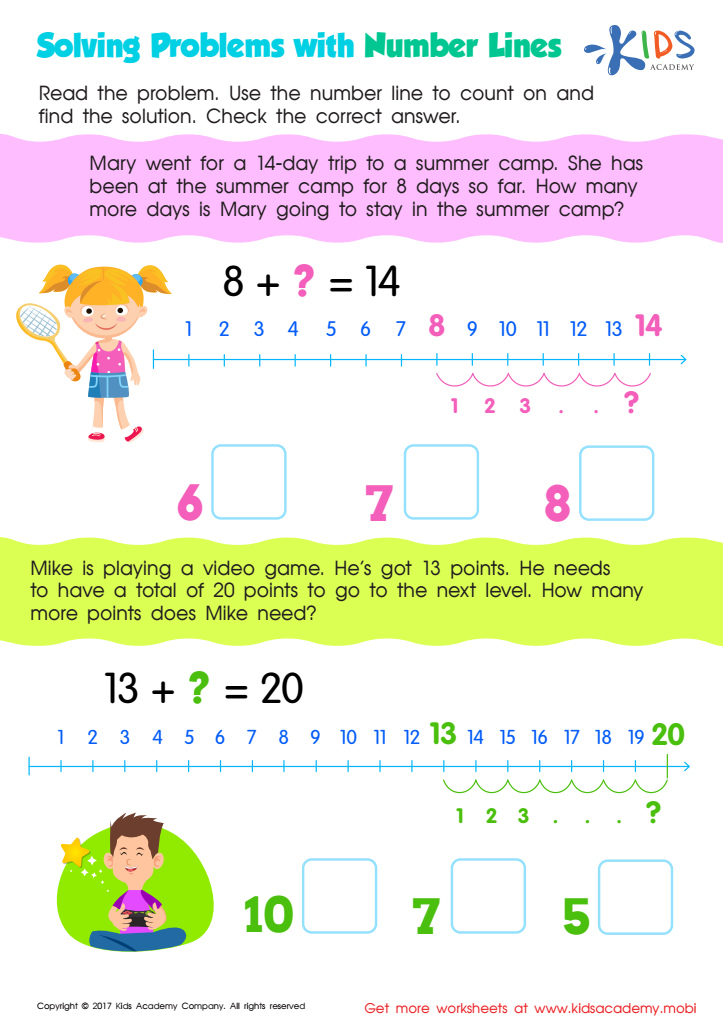

Solving Problems: Number Lines Worksheet
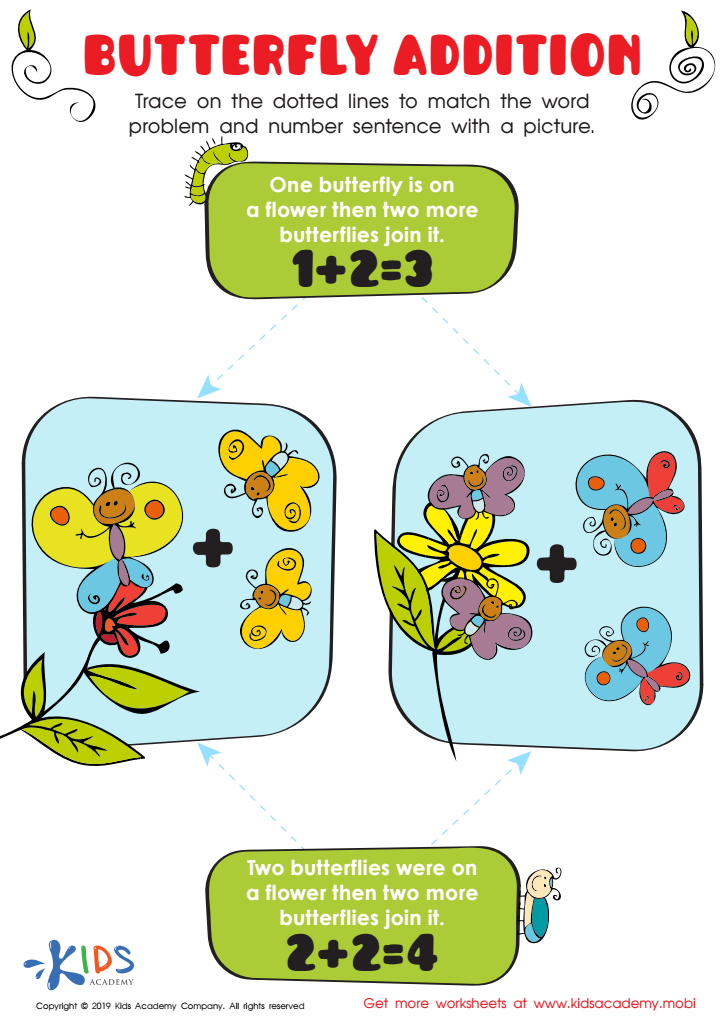

Butterfly Addition Worksheet
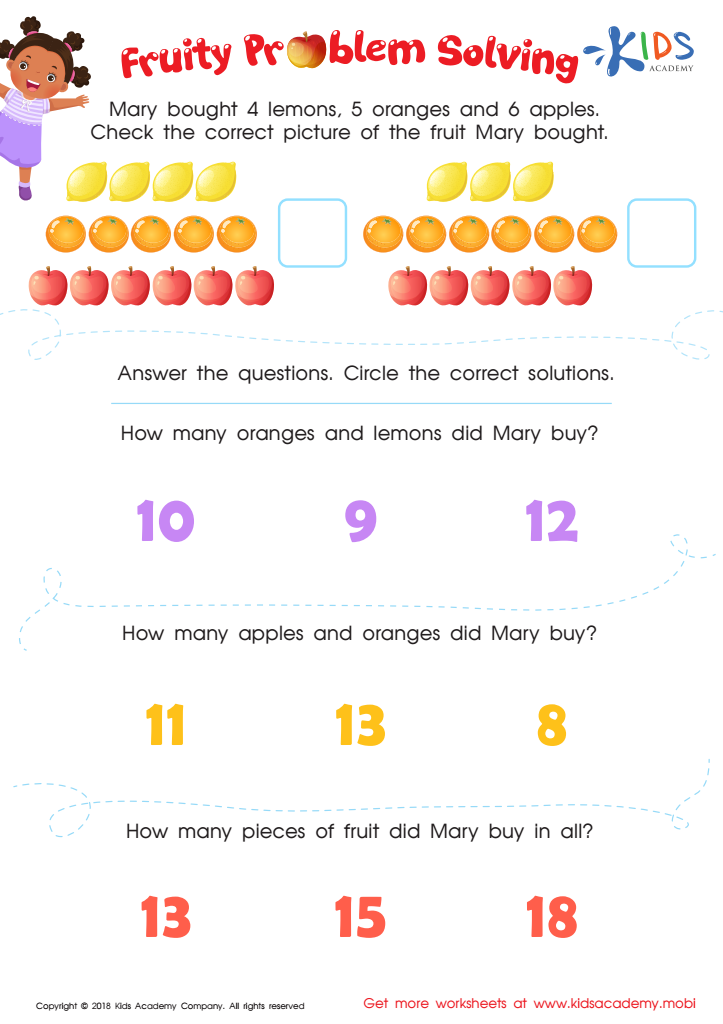

Fruity Problem Solving Worksheet


Adding Flower Petals Worksheet
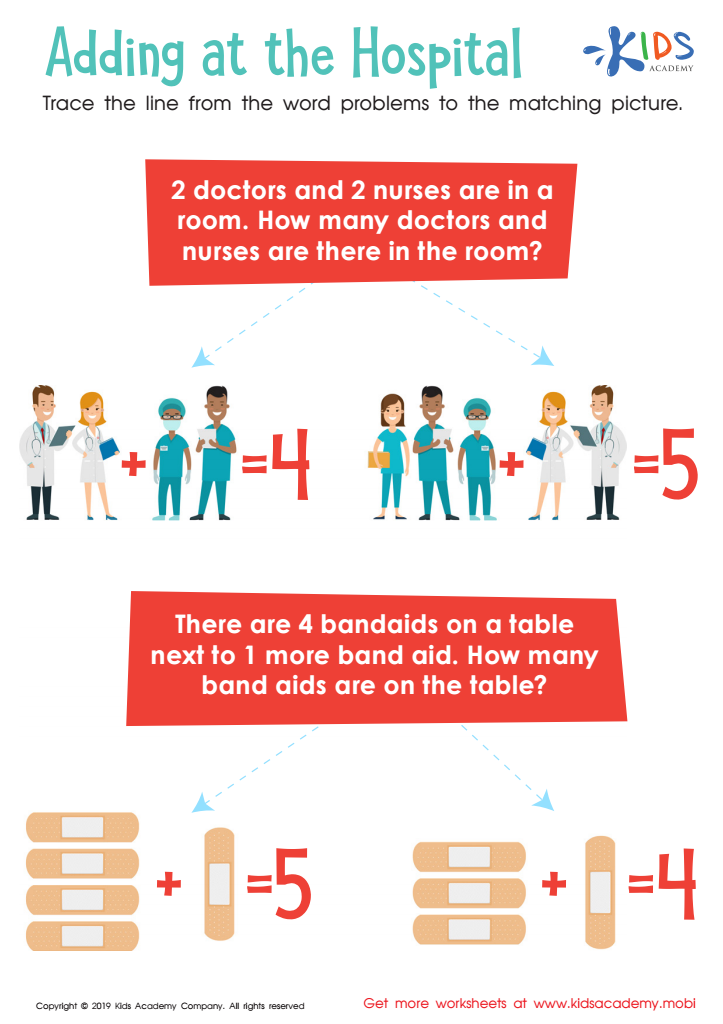

Adding at the Hospital Worksheet
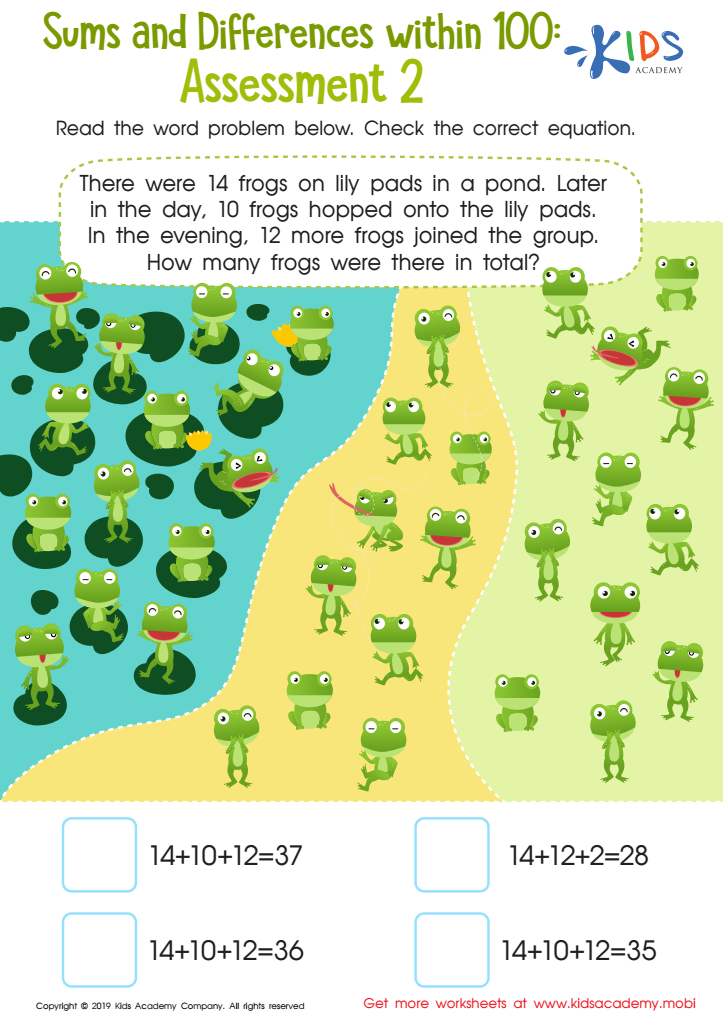

Sums and Differences Within 1 - Assessment 2 Worksheet
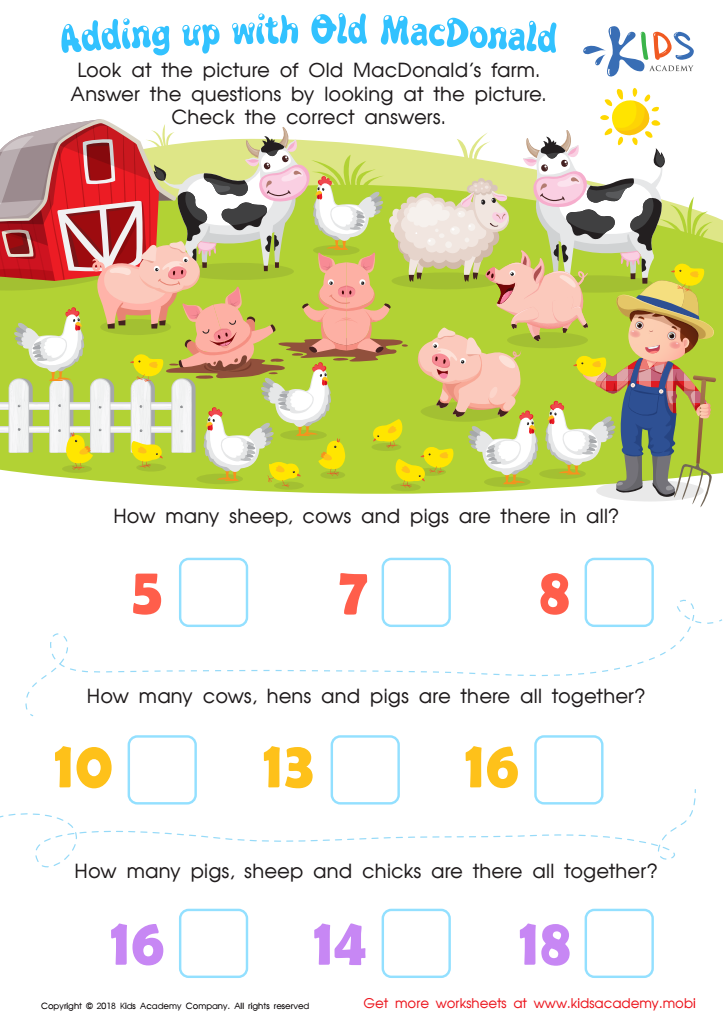

Adding Up with Old MacDonald Worksheet
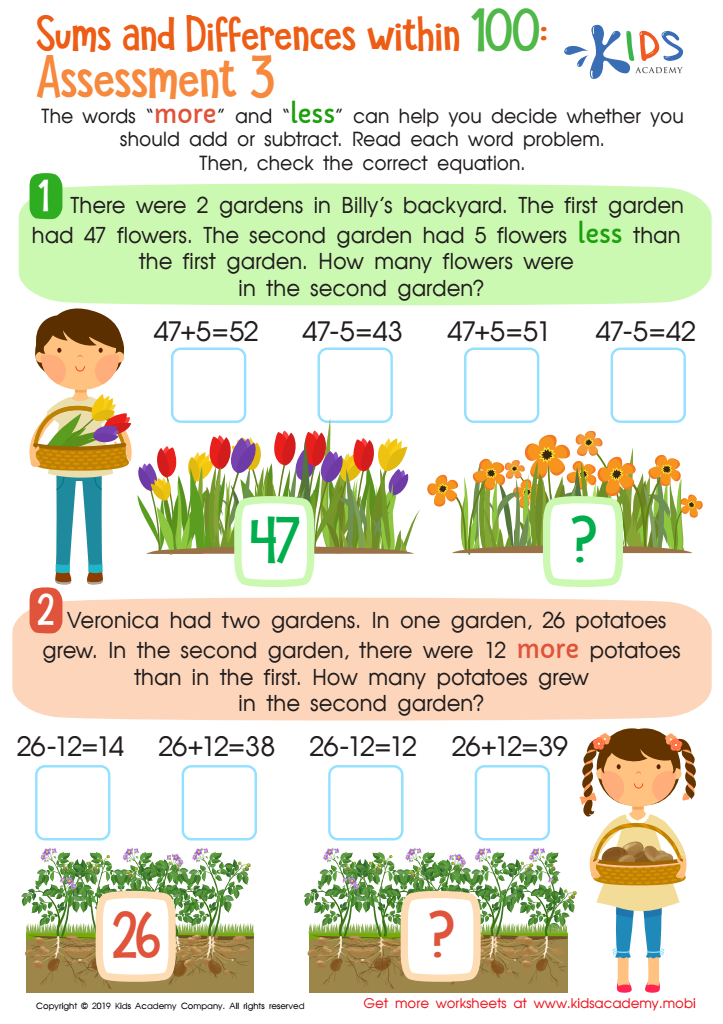

Sums and Differences Within 1 - Assessment 3 Worksheet
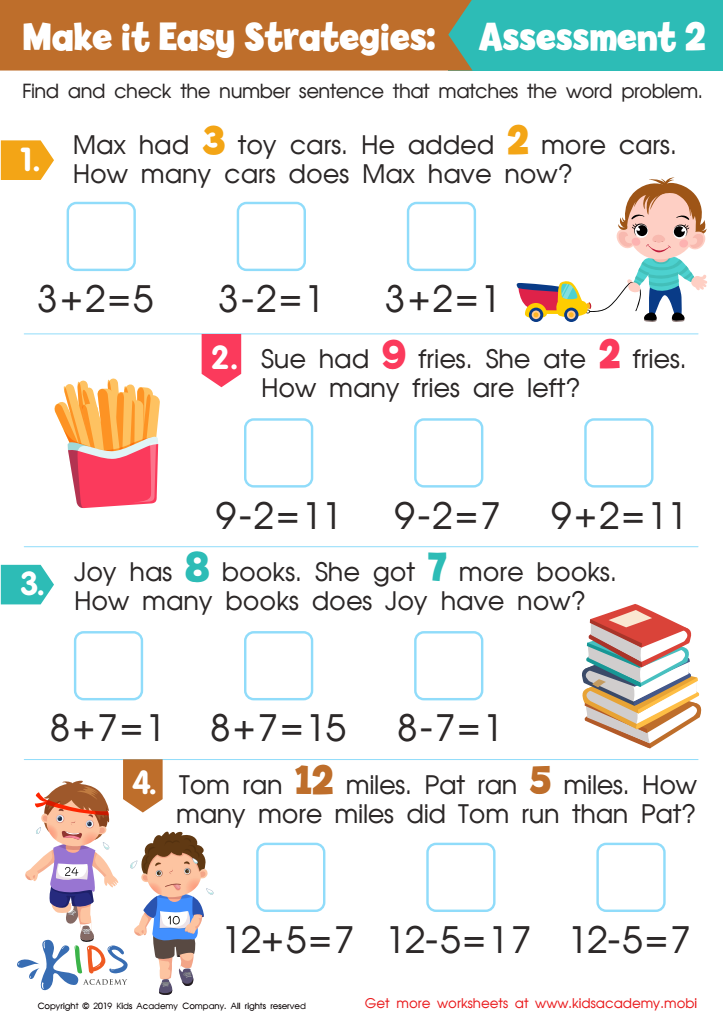

Make it Easy Strategies: Assessment 2 Worksheet
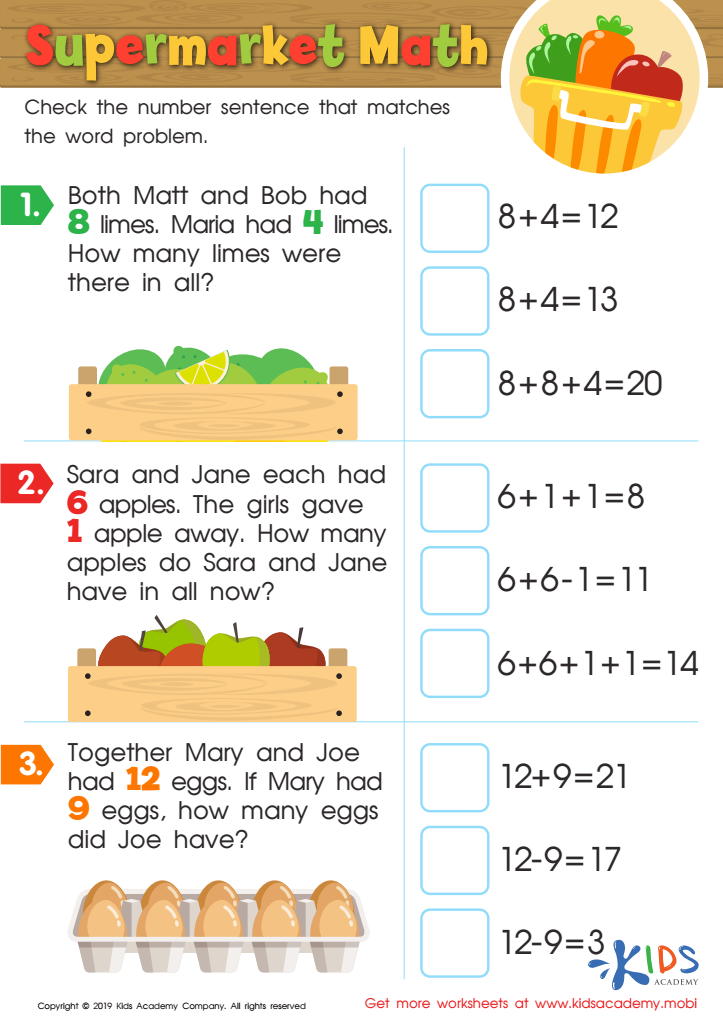

Supermarket Math Worksheet
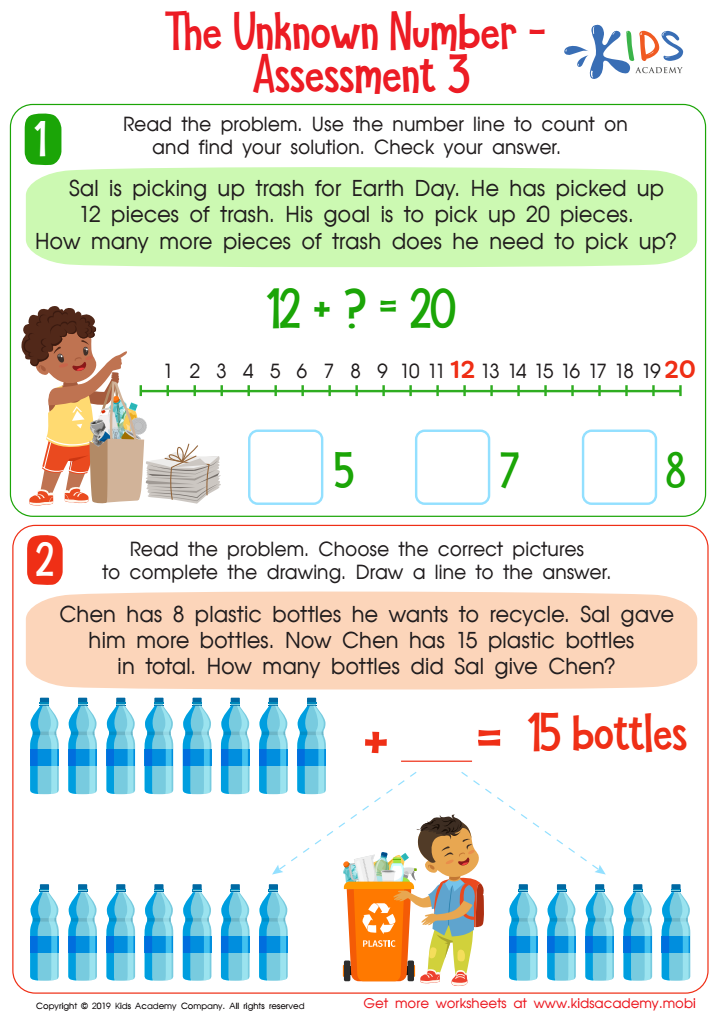

The Unknown Number - Assessment 3 Worksheet
Addition and subtraction skills, particularly through word problems, are essential for children aged 4-8 as they form the foundation of mathematical understanding. Parents and teachers should prioritize these skills because they foster critical thinking, problem-solving, and fluency in mathematics, which are crucial for academic success.
Word problems engage children in real-life scenarios, making math relatable and fun. They teach kids how to interpret situations, identify relevant information, and apply mathematical operations to find solutions. This enhances their analytical skills and cognitive abilities. Additionally, mastering these skills at an early age contributes to increased confidence, helping children approach more complex mathematical concepts in the future without fear.
Furthermore, proficiency in addition and subtraction lays the groundwork for more advanced mathematical concepts like multiplication, division, and early algebra. The skills learned from solving word problems also translate to other subjects. For example, understanding quantities and measurements is valuable in science and everyday activities. Ultimately, being adept at these fundamental skills sets children on a path toward lifelong learning, fostering curiosity and resilience both in mathematics and beyond. Consequently, parents and teachers play a vital role in nurturing these abilities, providing a supportive environment for exploration and growth.
 Assign to My Students
Assign to My Students








